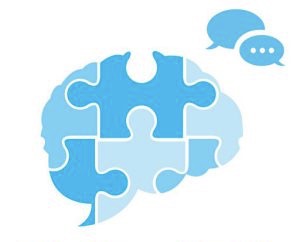Music therapy has been found to improve mental and emotional health. Symptoms of depression and anxiety are often decreased with the use of music. Music therapy can also help lift the mood and improve the quality of life of those with physical health issues.
Music therapy has been defined as ‘an interpersonal process in which the therapist uses music and all of its facets to help patients to improve, restore or maintain health’ (Bruscia1991). Music therapy can be broadly categorised as either ’Active’, in which people re-create, improvise or compose music, or ’Receptive’, in which they listen to music (Bruscia 1998).
Autism:
One study found that active music therapy sessions could be of aid in improving autistic symptoms, as well as personal musical skills in young adults with severe autism. (Boso, Emanuele, Minazzi, Abbamonte, & Politi, 2007). Specifically, it may help improve communication skills in children with an autistic spectrum disorder, according to a published review (Kim, Wigram, & Gold, 2009).
Dementia:
Qualitative review of literature in the area of music/music therapy and dementias published since 1985 suggested that music/music therapy is an effective intervention for maintaining and improving active involvement, social, emotional and cognitive skills, and for decreasing behavioural problems of individuals with dementias (Brotons, Koger, & Pickett-Cooper, 1997).
Another meta-analysis of twenty-one empirical studies, with a total of 336 subjects suffering from symptoms of dementia, were included in a meta-analysis. Overall, the effect of music/music therapy was found to be highly significant.
Depression:
A meta-analysis found that four out of five studies individually reported a greater reduction in symptoms of depression among those randomised to music therapy than to those in standard care conditions. The fifth study, in which music therapy was used as an active control treatment, reported no significant change in mental state for music therapy compared with standard care.
In conclusion:
Whether you are making music or listening to it, it can have a positive effect on the symptoms of both mental and physical illness.


Listening to worship music definitely helps me. 🙂
LikeLiked by 1 person
Reblogged this on Carla's Personal Blog.
LikeLiked by 1 person
Reblogged this on Food For Thought By Paige Redwine and commented:
I found this interesting especially since I deal with depression and love music!
LikeLiked by 1 person
I play my ukulele when I am stressed. It helps me keep my mind off my problems and focus on the notes I am playing
LikeLiked by 1 person
I absolutely love ukuleles! 🙂 Mine helps keep my distracted too, I become so involved in what I’m playing.
LikeLiked by 1 person
I do to. I taught myself to play at the beginning of last year. I am not great but I play well enough I can play several songs. I enjoy it and it helps me mentally as well. 🙂
LikeLiked by 1 person
Sold info. Music 🎶 is absolutely beneficial.🎶🎶.
LikeLiked by 1 person
Just a thought: do you think it’s possible that for someone who doesn’t like playing music to have worsened mental and emotional health through such therapy?
LikeLike
Music has healing effects. Science has confronted it also. Meditation with music really worked for many people dealing with stress. Byways nice post.
LikeLiked by 1 person
I’m a dance movement therapist and yes music therapy is amazingly healing and so are the other creative art therapies!
LikeLiked by 1 person
Reblogged this on The Ministry of Music.
LikeLiked by 1 person